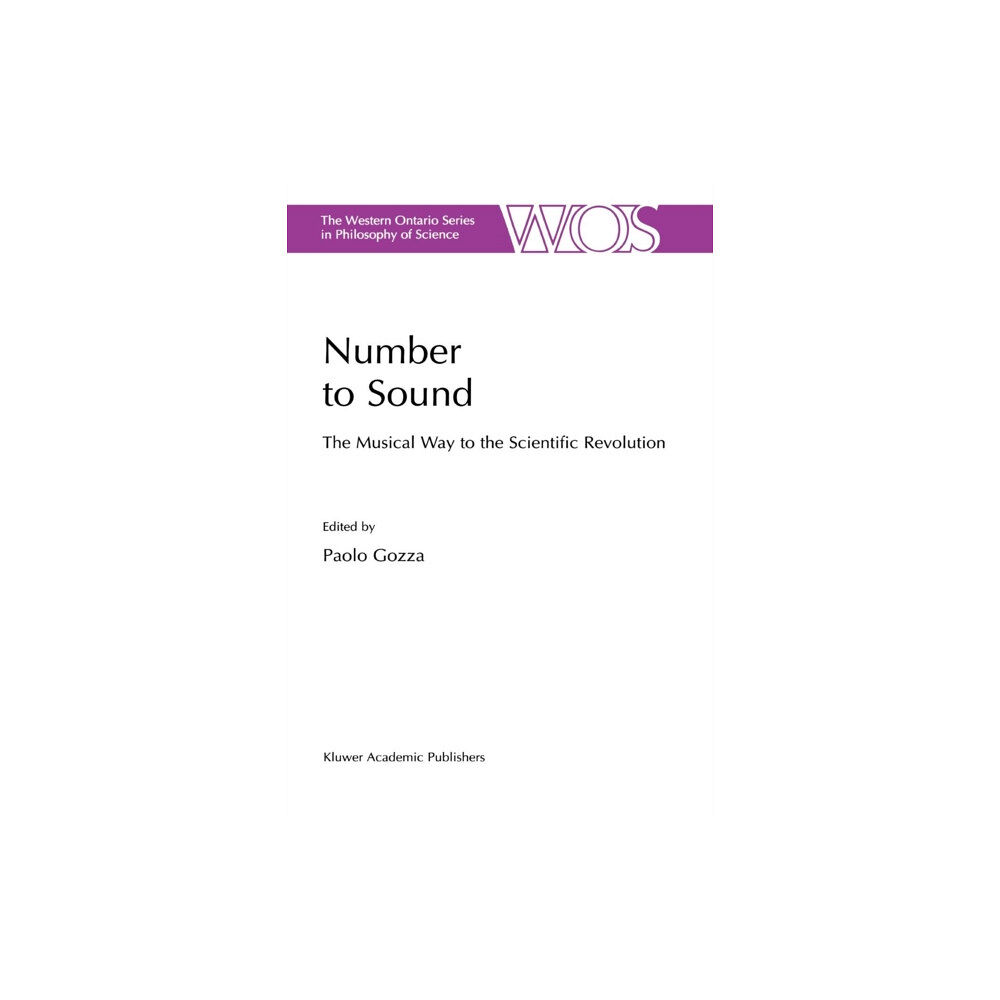- Hem
- Böcker
- Facklitteratur
- Musik
- Number to Sound (häftad, eng)

Number to Sound (häftad, eng)
Number 10 Sound: The Musical Way 10 the Scientific Revolution is a collection of twelve essays by writers from the fields of musicology and...
809 kr
855 kr
Slut i lager
- Fri frakt
Fri frakt över 299:-
Snabb leverans
Alltid låga priser
Produktbeskrivning
Number 10 Sound: The Musical Way 10 the Scientific Revolution is a collection of twelve essays by writers from the fields of musicology and the history of science. The essays show the idea of music held by Euro th pean intellectuals who lived from the second half of the 15 century to the th early 17 : physicians (e.
g. Marsilio Ficino), scholars of musical theory (e. g. Gioseffo Zarlino, Vincenzo Galilei), natural philosophers (e. g. Fran cis Bacon, Isaac Beeckman, Marin Mersenne), astronomers and mathema ticians (e. g. Johannes Kepler, Galileo Galilei ).
Together with other people of the time, whom the Reader will meet in the course of the book, these intellectuals share an idea of music that is far removed from the way it is commonly conceived nowadays: it is the idea of music as a science whose object-musical sound--can be quantified and demonstrated, or enquired into experimentally with the methods and instruments of modem scientific enquiry.
In this conception, music to be heard is a complex, variable structure based on few simple elements--e. g. musical intervals-, com bined according to rules and criteria which vary along with the different ages. However, the varieties of music created by men would not exist if they were not based on certain musical models--e.
g. the consonances-, which exist in the mind of God or are hidden in the womb of Nature, which man discovers and demonstrates, and finally translates into the lan guage of sounds.
g. Marsilio Ficino), scholars of musical theory (e. g. Gioseffo Zarlino, Vincenzo Galilei), natural philosophers (e. g. Fran cis Bacon, Isaac Beeckman, Marin Mersenne), astronomers and mathema ticians (e. g. Johannes Kepler, Galileo Galilei ).
Together with other people of the time, whom the Reader will meet in the course of the book, these intellectuals share an idea of music that is far removed from the way it is commonly conceived nowadays: it is the idea of music as a science whose object-musical sound--can be quantified and demonstrated, or enquired into experimentally with the methods and instruments of modem scientific enquiry.
In this conception, music to be heard is a complex, variable structure based on few simple elements--e. g. musical intervals-, com bined according to rules and criteria which vary along with the different ages. However, the varieties of music created by men would not exist if they were not based on certain musical models--e.
g. the consonances-, which exist in the mind of God or are hidden in the womb of Nature, which man discovers and demonstrates, and finally translates into the lan guage of sounds.
| Format | Häftad |
| Omfång | 322 sidor |
| Språk | Engelska |
| Förlag | Springer |
| Utgivningsdatum | 2010-10-28 |
| ISBN | 9789048153589 |
Specifikation
Böcker
- Häftad, 322, Engelska, Springer, 2010-10-28, 9789048153589
Leverans
Vi erbjuder flera smidiga leveransalternativ beroende på ditt postnummer, såsom Budbee Box, Early Bird, Instabox och DB Schenker. Vid köp över 299 kr är leveransen kostnadsfri, annars tillkommer en fraktavgift från 29 kr. Välj det alternativ som passar dig bäst för en bekväm leverans.
Betalning
Du kan betala tryggt och enkelt via Avarda med flera alternativ: Swish för snabb betalning, kortbetalning med VISA eller MasterCard, faktura med 30 dagars betalningstid, eller konto för flexibel delbetalning.
Specifikation
Böcker
- Format Häftad
- Antal sidor 322
- Språk Engelska
- Förlag Springer
- Utgivningsdatum 2010-10-28
- ISBN 9789048153589
